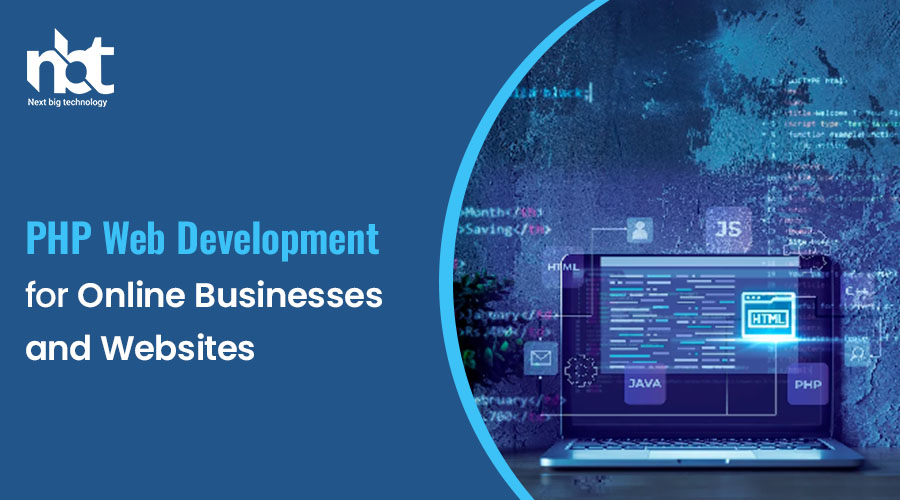Table of Contents
Introduction to PHP Web Development
PHP, or Hypertext Preprocessor, is a server-side scripting language widely used for web development. Known for its simplicity and efficiency, PHP enables developers to create dynamic content that interacts with databases. The demand for PHP web development has surged due to its ability to produce feature-rich and scalable websites, making it an ideal choice for online businesses.
Advantages of PHP in Web Development
Flexibility and Scalability
One of the primary advantages of PHP is its flexibility, allowing developers to integrate it seamlessly with other technologies. The scalability of PHP ensures that websites and applications can grow to accommodate increasing user traffic without compromising performance.
Cost-Effectiveness
PHP is an open-source language, meaning it’s freely available for developers. This significantly reduces development costs, making it an attractive option for businesses, especially startups with budget constraints.
Large Developer Community
The vast and active PHP developer community contributes to the language’s constant improvement. Developers worldwide share insights, tools, and resources, fostering a collaborative environment that benefits everyone involved.
Key Features of PHP for Online Businesses
Server-Side Scripting
PHP’s server-side scripting capabilities enable the execution of code on the server before sending the HTML to the client’s browser. This ensures a smoother and more efficient user experience.
Database Integration
PHP seamlessly integrates with popular databases like MySQL, facilitating the storage and retrieval of data. This capability is crucial for online businesses that rely on dynamic content and real-time updates.
Compatibility with Various Platforms
PHP is platform-independent, meaning it can run on different operating systems. This versatility makes it accessible to a broad audience and ensures consistent performance across various platforms.
Popular PHP Frameworks
PHP frameworks provide a structured foundation for web development, streamlining the coding process and enhancing project efficiency. Three of the most popular PHP frameworks are Laravel, Symfony, and CodeIgniter.
Laravel
Laravel is renowned for its elegant syntax and expressive features. It simplifies common tasks, such as routing, caching, and authentication, allowing developers to focus on building unique and powerful applications.
Symfony
Symfony is a flexible and modular framework suitable for projects of any size. Its reusable components and scalability make it a preferred choice for developers working on complex and large-scale applications.
CodeIgniter
CodeIgniter is known for its lightweight nature and exceptional performance. It offers straightforward solutions for tasks like database manipulation, making it an excellent choice for projects with tight deadlines.
PHP and E-commerce Development
Customization Options
E-commerce websites often require unique features and functionalities. PHP’s flexibility allows developers to create tailored solutions, meeting the specific needs of online businesses.
Security Features
Security is paramount in e-commerce, and PHP provides robust tools for safeguarding sensitive information. With features like data encryption and secure coding practices, PHP ensures a secure online shopping experience.
Integration with Payment Gateways
PHP seamlessly integrates with various payment gateways, facilitating smooth transactions for online businesses. This compatibility is vital for providing customers with diverse payment options.
Responsive Web Design with PHP
Importance of Responsive Design
In the era of mobile devices, responsive web design is non-negotiable. PHP’s capabilities enable developers to create websites that automatically adapt to different screen sizes, ensuring a consistent user experience across devices.
How PHP Facilitates Responsive Web Development
PHP’s server-side scripting allows developers to detect the user’s device and dynamically adjust the content and layout accordingly. This ensures that the website remains user-friendly and visually appealing, regardless of the device used.
SEO Best Practices with PHP
Clean and Organized Code
Search engines favor clean and organized code. PHP’s syntax encourages structured coding practices, contributing to better readability and improved search engine rankings.
URL Structure and SEO-Friendly Links
PHP enables developers to create SEO-friendly URLs, incorporating keywords and descriptive elements. This enhances the website’s visibility and makes it more accessible to search engine crawlers.
Meta Tags and Descriptions
Effective use of meta tags and descriptions is crucial for SEO. PHP allows developers to dynamically generate these elements, ensuring accurate and relevant information is presented to search engine users.
Enhancing User Experience with PHP
User-Friendly Interfaces
PHP facilitates the creation of intuitive and user-friendly interfaces. Its dynamic capabilities enable the development of interactive elements that engage users and enhance the overall browsing experience.
Quick Loading Times
Website speed is a critical factor in user satisfaction. PHP’s efficient execution of server-side code contributes to faster loading times, reducing bounce rates and improving search engine rankings.
Integration of Multimedia Elements
PHP supports the integration of multimedia elements, such as images and videos, without compromising performance. This enhances the visual appeal of websites and contributes to a more engaging user experience.
PHP for Content Management Systems (CMS)
WordPress and PHP
WordPress, a leading CMS, is built on PHP. The combination of PHP’s dynamic capabilities and WordPress’s user-friendly interface makes it a popular choice for content creators and website owners.
Joomla and PHP
Joomla, another widely used CMS, relies on PHP for its scripting needs. The synergy between PHP and Joomla allows for the creation of feature-rich and customizable websites.
Drupal and PHP
Drupal, known for its flexibility and scalability, owes much of its functionality to PHP. The dynamic nature of PHP enables developers to extend Drupal’s capabilities, creating powerful and adaptable websites.
Security Measures in PHP Web Development
Data Encryption
Protecting sensitive data is paramount in web development. PHP supports various encryption techniques, ensuring that user information remains secure during transmission and storage.
Regular Updates and Patches
PHP’s active developer community continually releases updates and patches to address security vulnerabilities. Staying updated with the latest PHP versions is crucial for maintaining a secure web environment.
Best Practices for Secure Coding
Adhering to secure coding practices is essential in PHP development. Developers should follow industry best practices, such as input validation and parameterized queries, to minimize the risk of security breaches.
Scalability and Growth in PHP Development
Adapting to Increasing Traffic
Online businesses often experience fluctuations in website traffic. PHP’s scalability allows websites to seamlessly adapt to varying levels of user activity, ensuring consistent performance during peak times.
Upgrading Features Seamlessly
As businesses evolve, so do their web development needs. PHP’s modular architecture enables developers to upgrade features and add new functionalities without disrupting the existing infrastructure.
Challenges and Solutions in PHP Development
Common Challenges Faced by Developers
Developers may encounter challenges such as code maintainability, performance optimization, and debugging. Addressing these issues requires a deep understanding of PHP’s nuances and adopting effective coding practices.
Strategies to Overcome These Challenges
Engaging with the PHP community, staying updated on best practices, and leveraging debugging tools are essential strategies for overcoming challenges in PHP development. Continuous learning and collaboration with peers contribute to skill enhancement.
Future Trends in PHP Web Development
Integration of AI and Machine Learning
The integration of artificial intelligence (AI) and machine learning (ML) is a growing trend in web development. PHP’s adaptability positions it well for incorporating these advanced technologies, enhancing the functionality of web applications.
Progressive Web Applications (PWAs)
Progressive web applications (PWAs) offer a seamless and engaging user experience. PHP, with its focus on dynamic content, aligns with the principles of PWAs, making it a suitable choice for developing these innovative applications.
Continuous Evolution of PHP
PHP’s development is ongoing, with regular updates introducing new features and improvements. The language’s continuous evolution ensures that PHP remains relevant and competitive in the ever-changing landscape of web development.
Case Studies: Successful Online Businesses Built with PHP
Showcase Real-World Examples
Several prominent online businesses owe their success to PHP web development. Case studies illustrate how PHP has empowered these businesses to create robust and scalable online platforms, contributing to their growth and success.
Highlight the Success Stories of Businesses Using PHP
Examining the success stories of businesses utilizing PHP showcases the language’s versatility and effectiveness in diverse industries. From e-commerce giants to content-driven websites, PHP continues to be a driving force behind online success stories.
Conclusion
In conclusion, PHP web development stands as a cornerstone in the realm of online businesses and websites. Its versatility, scalability, and dynamic features make it a preferred choice for developers aiming to create robust and feature-rich web applications. As technology evolves, PHP continues to adapt, incorporating advancements like AI and supporting emerging trends like PWAs. The success stories of businesses built on PHP highlight its enduring impact on the digital landscape.
Thanks for reading our post “PHP Web Development for Online Businesses and Websites”. Please connect with us to know more about PHP Web Development.






















